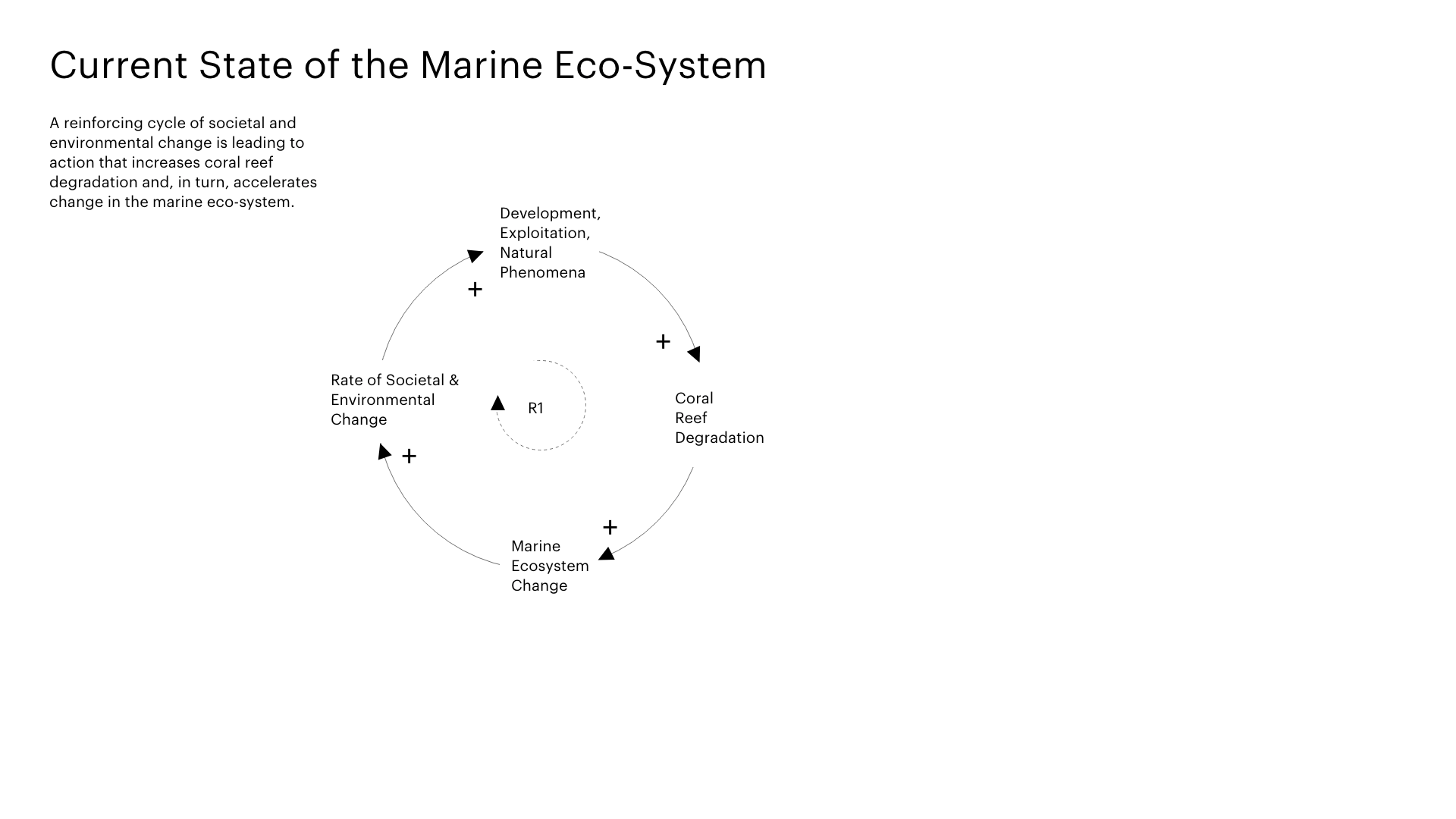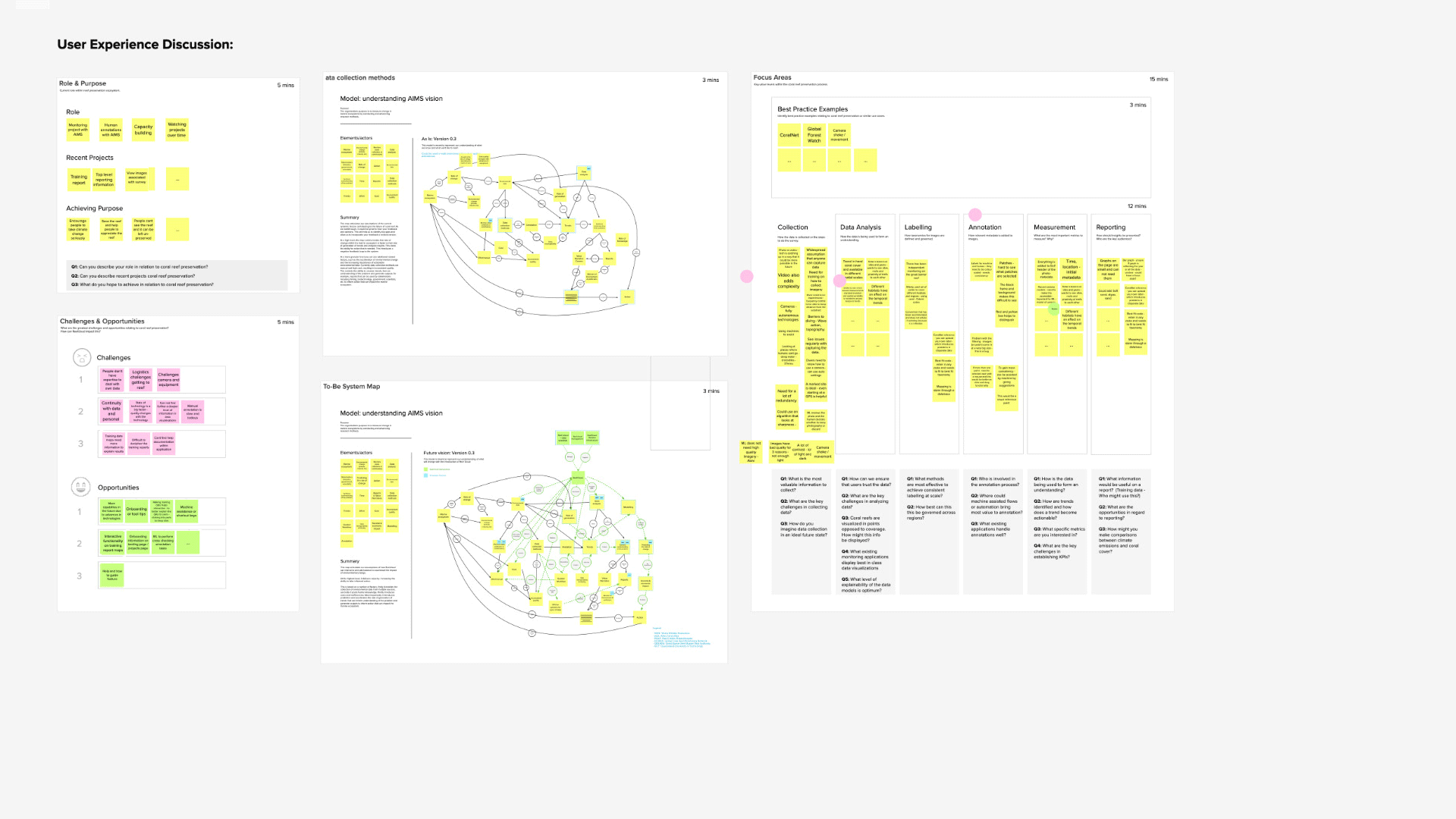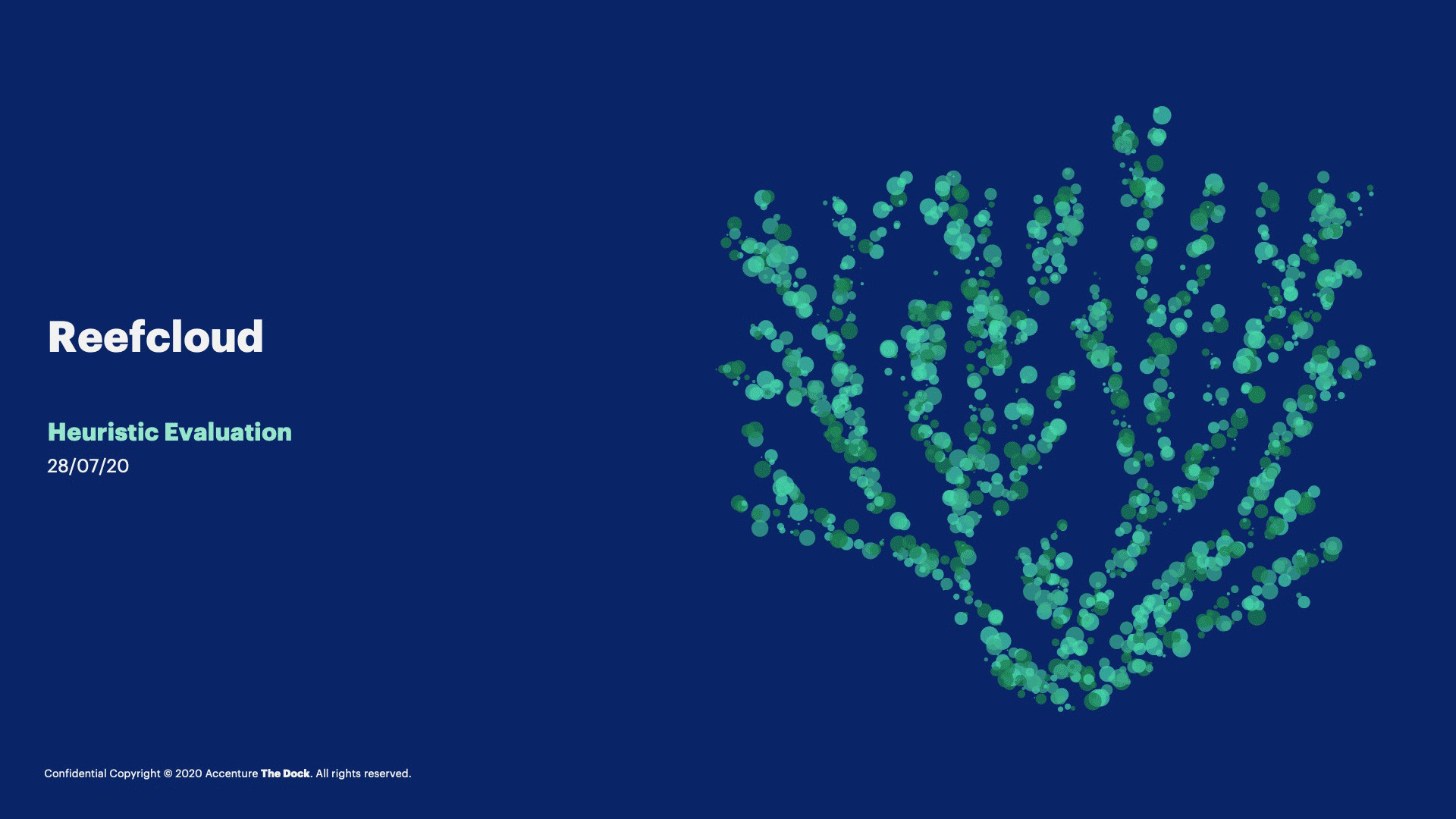Up to 50% of the world’s coral reef, including the Great Barrier Reef, have already been severely damaged. 90% will be critically endangered by 2050 if we don’t act now. This is one of the most significant effects of global climate change of our time. How might we help to better identify and monitor coral species at risk from climate change?
We partnered with the Australian Institute of Marine Science (AIMS) is Australia’s tropical marine research agency. AIMS plays a pivotal role in providing large-scale, long-term and world-class research that helps governments, industry and the wider community to make informed decisions about the management of Australia’s marine estate.
The ultimate vision for ReefCloud is that it will influence the availability of information and knowledge for policymaking, which will in turn improve the sustainable management of coral reefs.

This can be achieved by working around incompatibilities of data, enabling contribution and repatriating data to users. By constructing from individual monitoring contributions and providing sophisticated data analysis tools to strengthen regional capacity in coral reef monitoring, we can change the way in which we monitor coral reefs.

We gained an understanding of the systemic challenges contributing to the failure of coral reef and identified who is responsible for maintaining it and understand motivations. We identified the jobs to be done for key actors and opportunity areas to create interventions that can help to rebalance the system.

The existing ReefCloud processes and workflows were analysed. An audit of the current user experience was conducted as part of a heuristic evaluation based on Nielson Norman best practice principles. Features were identified and prioritised as desirable future state ReefCloud concepts.
The central challenge lays on the inconsistencies in methodology and data formats. Such inconsistencies severely constrain the collective and timely understanding of trends in coral reef condition that is urged to take asserted actions.
Opportunities for standard knowledge integration, on the other hand, can be found on images as common currency in coral reef monitoring and big data science to circumvent inconsistencies, homogenise reporting practices and produce timely advice.

We created a public facing application that facilitates local users but is also designed with key stakeholders and users in mind including government agencies, marine biologists and data scientists.
Key areas of value were identified through research and prioritised with end users and stakeholders. Features in these areas were visualised in the UI. Features included the ability to display data insights at different level of granularity on the map (global, region, reef and site levels) and to allow user to zoom in and out. A dashboard screen was also designed with snapshot of key metrics, overview of the narrative and export feature.
The UI was prototyped and iterated a number of times based on feedback from reviews and brought forward to enhance the user experience. Scenario testing and surveys were shared to capture feedback from users. The scenario test included flows demonstrating how a user can quickly navigate and find relevant data insights at varying levels of granularity. It demonstrates how a user can view saved selections including relevant metrics and an overview of the narrative. It also allows to accurately collate and quickly export relevant information.
We worked closely with our analytics team to concept an annotation tool that utilises user experience design with an AI technique called image segmentation to create a tool that brings speed to value for marine biologists. The UI allows the user to paint segments of coral within a tool with the image segmentation technique in order to reduce the manual annotation burden currently carried by marine experts.
In guiding the annotator through segments of the image, it is much clearer which object is being annotated and the full task is completable with just a few clicks. This techniques results in a much improved user experience, while vastly increasing the amount of annotated coral reef.

The project was entered into the Eco Innovation Awards 2021 and was awarded the top prize in the sustainability category.
The interfaces are currently being developed by our partners in the Accenture Applied Intelligence team in Sydney, Australia. The project is showcased by Accenture and brings The Dock into the spotlight on a global level.